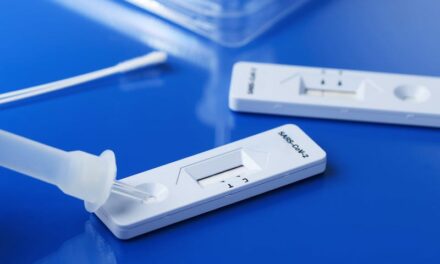Persivia, Marlborough, Mass, has launched a new COVID-19 surveillance module within its Soliton AI engine. Delivered as part of its CareSpace platform, this module uses data from multiple sources to identify patients who may have a COVID-19 novel coronavirus infection.
With a shortage of tests for COVID-19, the ruleset will help healthcare professionals more effectively target patients who need to be tested. The new functionality will be available to Persivia’s installed base of 20 million covered lives across the country.
The new Soliton module targets suspected COVID-19 cases by processing structured and unstructured data that Persivia acquires and normalizes from disparate sources, including real-time data from electronic health records. The Soliton AI engine uses evidence-based algorithms to identify specific concepts and keywords in structured and unstructured data to pinpoint potential cases of interest. Patients who are identified as having three or more relevant symptoms, as identified by guidelines from the Centers for Disease Control and Prevention (CDC)—such as fever, shortness of breath, and cough—are flagged with a level one alert. At this lowest level, the patient’s physician is prompted to educate the patient about COVID-19 and monitor their status. If Persivia also identifies a travel or exposure history, the alert gets raised to a level two, where a CDC test is recommended.
Patients receive a level three alert when they are presumed positive for COVID-19 and level four when they are confirmed with symptoms. Medical professionals are also able to search for all patients flagged as possibly having COVID-19 and can filter them by alert level and symptoms.
Persivia will adapt and add to the ruleset as more is learned about the disease, its symptoms, and progression. Similar rulesets can be developed for any health state, from other infectious diseases, to behavioral health and heart failure.
“In 2014, the medical world received a rude awakening about the fallibility of our fragmented healthcare system when a man with Ebola symptoms was erroneously discharged from the hospital,” says Fauzia Khan, MD, Persivia’s chief medical officer. “The inability to match the documentation of travel history in the intake nurse’s notes with the symptoms coded by the physician was a flaw—one we have bridged with our ability to create evidence-based ruleset within CareSpace. CareSpace is built to acquire, aggregate, and normalize data from multiple sources, which ensures it doesn’t miss any piece of recorded information about a patient from anywhere along the care continuum. This is critical when it comes to public health threats. We hope our ruleset will help healthcare organizations across the country identify the novel coronavirus in patients more quickly and effectively, leading to more appropriate testing, timely care, and better health outcomes.”
For more information visit Persivia.




